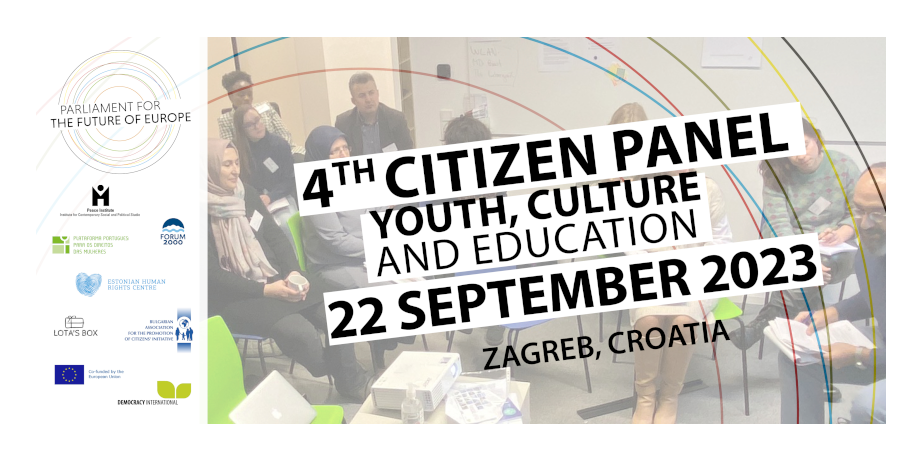Article written by
Daniela Vancic
Lead European Policy and Advocacy

Zagreb
Zagreb
Croatia
Zagreb, Croatia – 22 September 2023
The Parliament for the Future of Europe is our take on the Conference for the Future of Europe. Our aim is to bring together a diverse group of people from marginalized and underrepresented groups to the center of the debate. With our six partners we bring together participants from across Europe to discuss and scrutinize the proposals of the historic Conference on the Future of Europe and reshape them to be more inclusive and meet the needs of vulnerable communities. Our 4th Citizen Panel took us to Zagreb, Croatia, on Friday, 22 September 2023. We were hosted by our local partner Lota's Box and discussed Youth, Culture, and Education.
The Conference for the Future of Europe's proposals on Youth, Culture and Education starting on page 88 served as the basis of the discussion.
The new proposals are as follows:
Objective: The EU and its Member states should seek to establish by 2025 an inclusive European Education Area within which all citizens and residents have equal and affordable access to quality education, especially higher-level education, and life-long learning, including those in rural and remote areas. To this aim, the European Union and its Member states should in particular:
Measures
- Civic education about democratic processes, as well as EU values and history of Europe. This ought to be mandatory as a common module to be taught in all Member States. Economic literacy and all forms of tolerance and beliefs, as part of a civics curriculum, should also be improved as an aspect of better understanding the European integration process.
- Digital skills, to be progressively taught starting from a young age. More EU funded programs for digital skills training including the elderly and people from marginalized groups.
- STEAM (Science, Technology, Engineering, Art, Mathematics)
- Entrepreneurship and research
Objectives: The EU and its Member States have to focus on the specific needs of young people across all relevant policies, including the European Union’s regional policy in order to offer them the best possible conditions for study and work and starting an independent life, while engaging them in the democratic life and decision making processes, including at European level. Youth organisations have a crucial role to play. To achieve this objective, we propose to:
Measures
Objectives: In order to promote a culture of exchange and foster European identity and European diversity across different areas, the Member States, with the support of the European Union, should:
Measures

This project is co-funded by the European Union. Views and opinions expressed are however those of the author(s) only and do not necessarily reflect those of the European Union or CERV. Neither the European Union nor the granting authority can be held responsible for them.